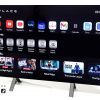Comcast Has Shown No Justification for CableCARD Delay
The Consumer Electronics Association (CEA) today filed its opposition to Comcast Corporation’s petition to the Federal Communications Commission for review of the Media Bureau’s denial of its request for a delay regarding the deployment of competitive set top boxes for consumers.
In its filing, CEA argued to the Commission: “The overall intention of Section 629 is to promote innovation in the area of cable-compatible devices through competition. Comcast does not even attempt to show that any purported positive effects of a waiver would outweigh the harm to competition that Congress and the Commission have consistently identified in the navigation device market, and that the Commission has found to have been exacerbated by prior delays in implementation.”
On January 10, the Federal Communications Commission’s Media Bureau, acting on delegated authority, denied a request from Comcast Corporation for a delay of at least five years of the Commission’s rules requiring Comcast and other cable operators to permit consumers to purchase competitive set top boxes. The Commission first adopted rules requiring cable operators to permit the development of a competitive navigation device marketplace in 1998, and the cable companies proposed the so-called CableCARD to implement the Commission’s rules. But in the past nine years, the cable companies have twice succeeded in convincing the FCC to delay implementation of those rules, and launched two unsuccessful court challenges in an effort to block implementation entirely.
In its opposition, CEA also pointed out to the Commission that:
- It has now become clear that Comcast is simply seeking to delay the Commission’s rules for an interminable time period, suggesting that “the Commission has been far too generous in the discretionary relief it has afforded to date.”
- “Almost seven years after the July 1, 2000 date on which the Commission explicitly assumed that CableCARDs would be in widespread deployment, Comcast’s goal remains counter to and inappropriate for the administration of the congressionally-mandated competitive set top box regime.”
- Whereas Comcast originally based its waiver on claims that “downloadable security” would soon be available and would obviate the need for the Commission’s current rules, “Comcast further destroys its own prior representations about the purported imminence of downloadable security by arguing that [it] will be neither suitable nor ready within any relevant timeframe.”
About CEA:
The Consumer Electronics Association (CEA) is the preeminent trade association promoting growth in the consumer technology industry through technology policy, events, research, promotion and the fostering of business and strategic relationships. CEA represents more than 2,100 corporate members involved in the design, development, manufacturing, distribution and integration of audio, video, mobile electronics, wireless and landline communications, information technology, digital imaging, home networking, multimedia and accessory products, as well as related services that are sold through consumer channels. Combined, CEA’s members account for more than $140 billion in annual sales. CEA’s resources are available online at www.CE.org, the definitive source for information about the consumer electronics industry.
CEA also sponsors and manages the International CES — Defining Tomorrow’s Technology. All profits from CES are reinvested into industry services, including technical training and education, industry promotion, engineering standards development, market research and legislative advocacy.























